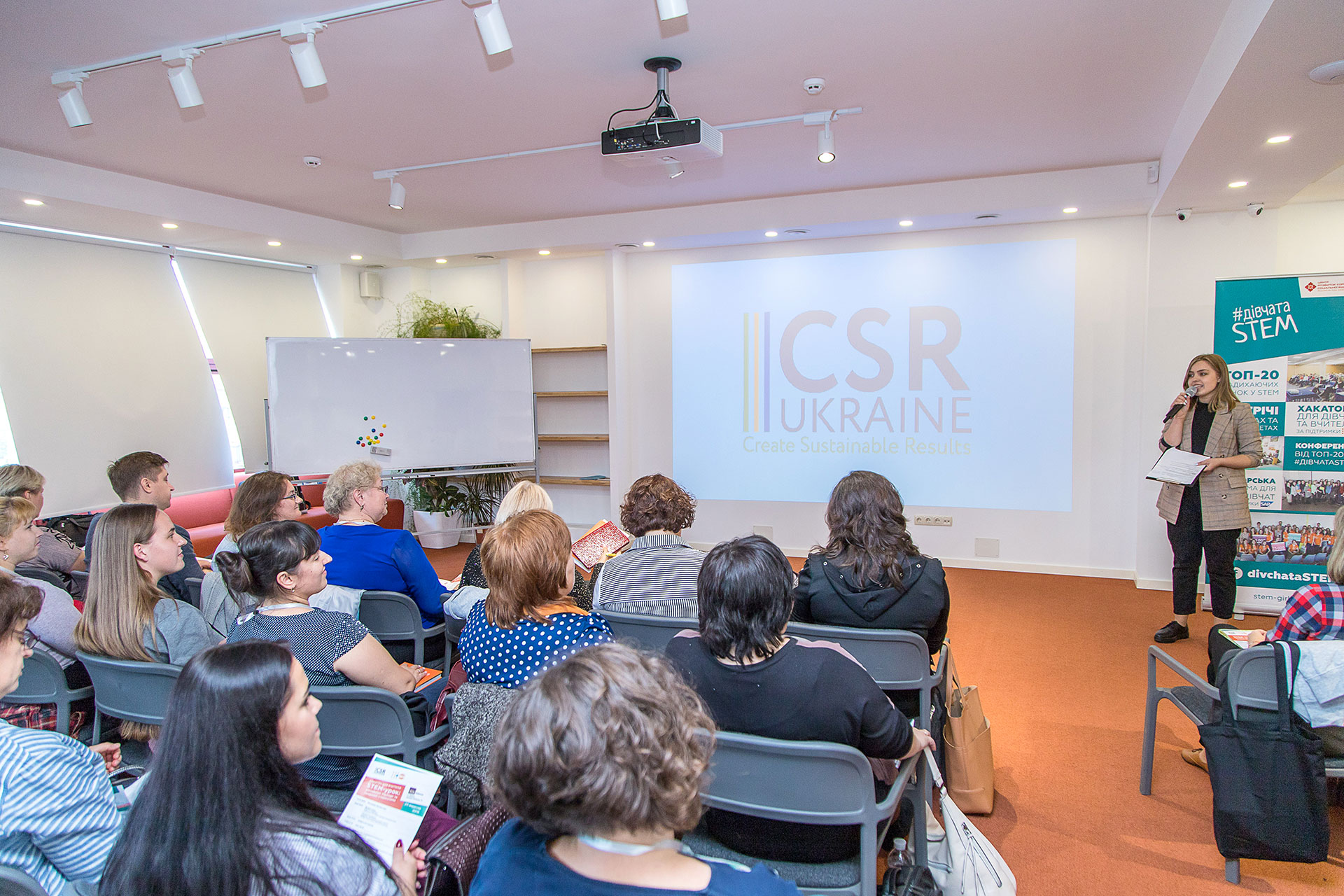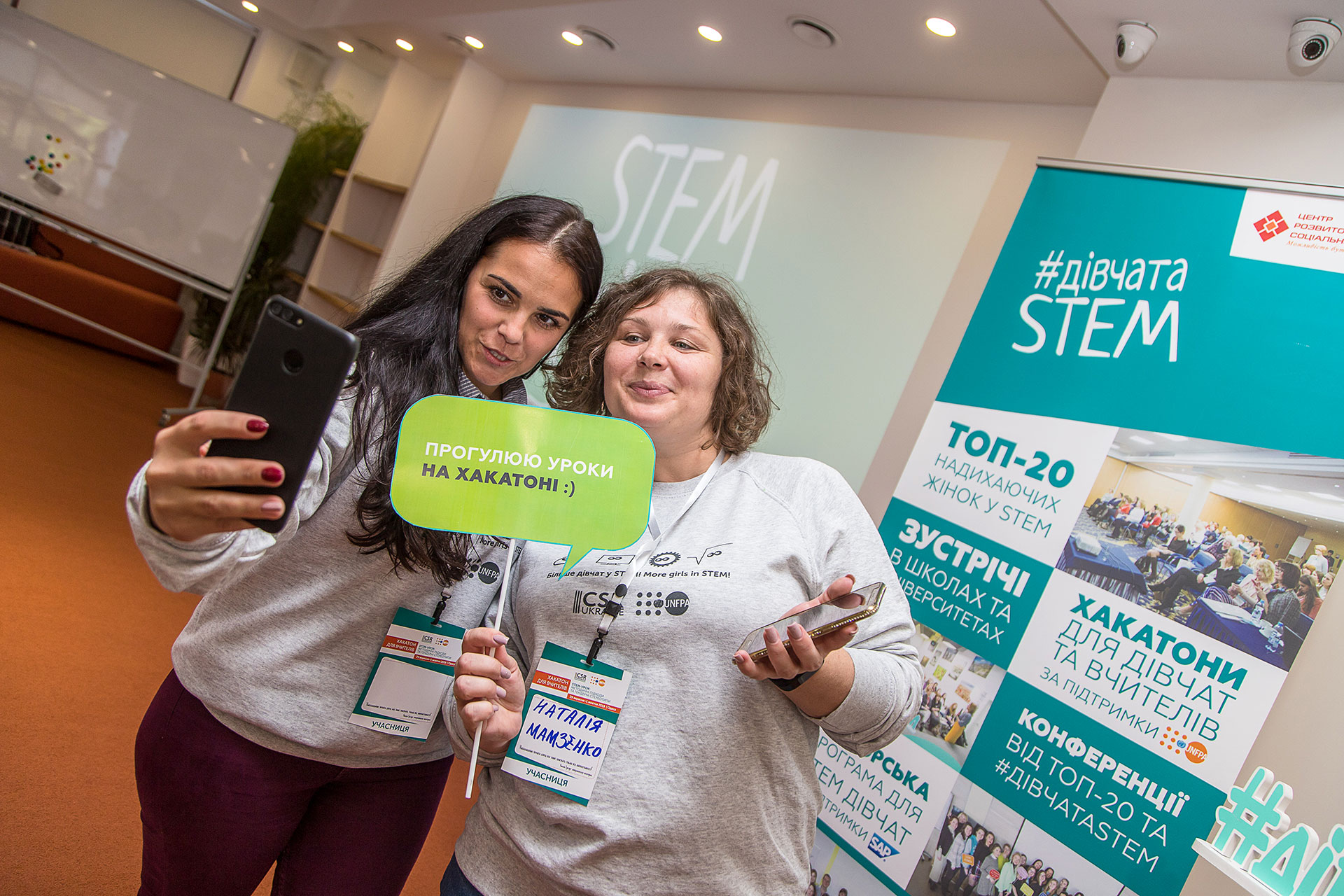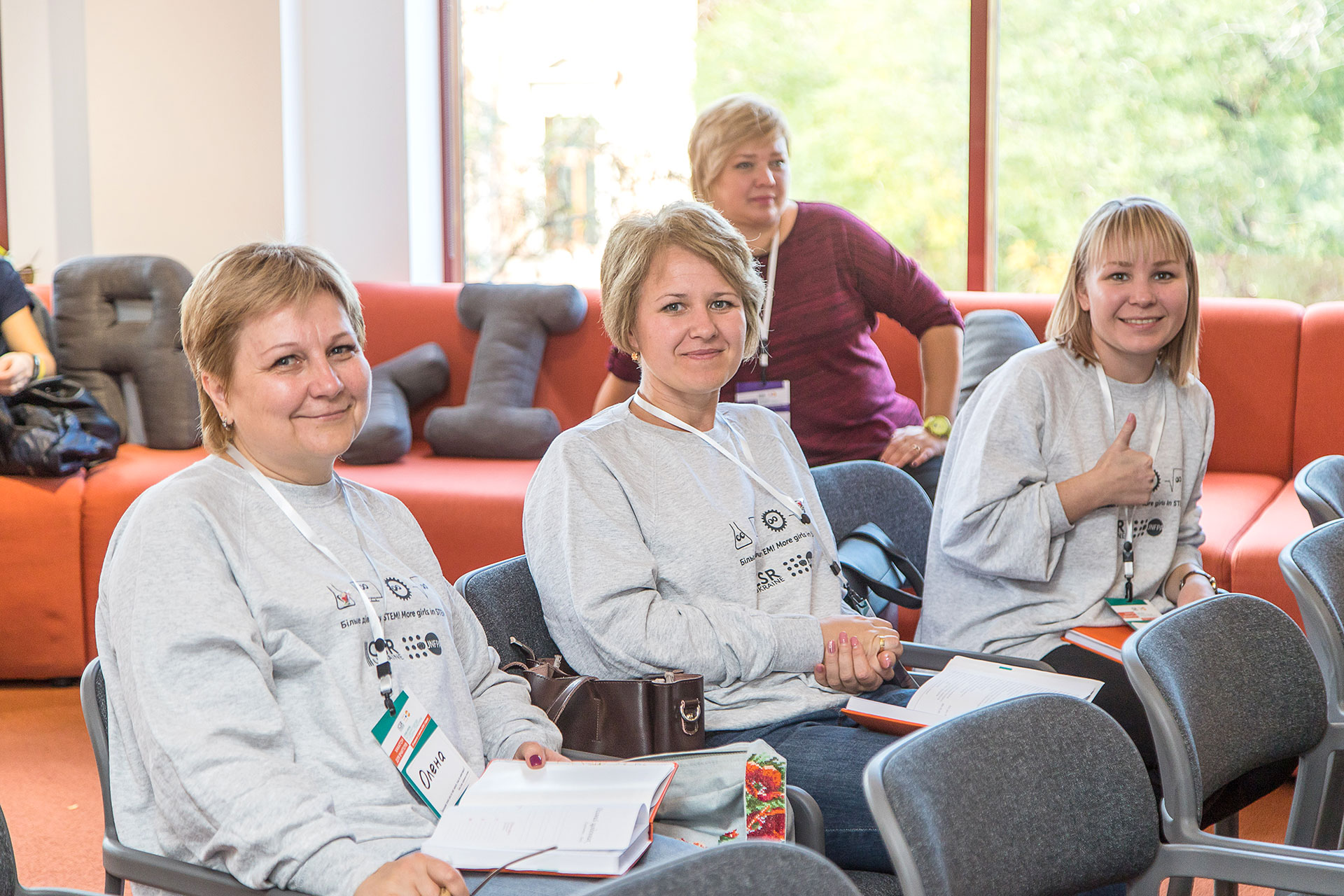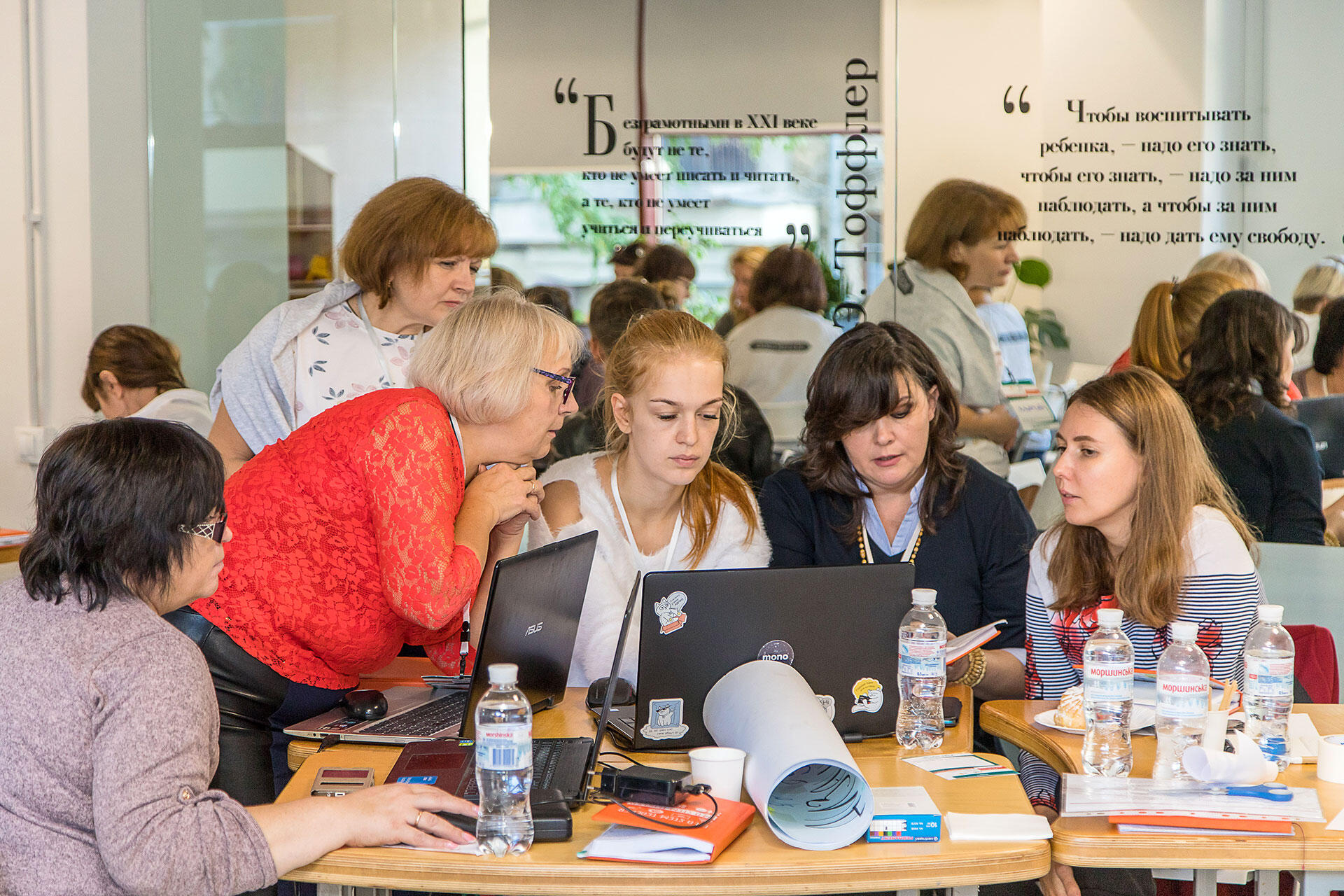September 29 - October 1, in Odesa the regional Hackathon for teachers "STEM lesson: methodical approaches and gender stereotypes" was held. Over the course of three busy days, STEM teachers analyzed stereotypes in education and developed projects to engage schoolgirls to participate actively in STEM lessons. The event was organized by CSR Ukraine, an expert organization of the CSR Development Center and UNFPA, the United Nations Population Fund. Institute for the Education Content Modernization of the MES became the event partner.
According to the results of a nationwide sociological survey of young people in 2017, girls in general are three times less intending to master the STEM profession “engineer” than boys. If in 2010/2011 the number of women seeking engineering education was almost 27%, to date it dwindled to 20%. The main purpose of the event was to jointly develop projects and methodologies that would help teachers screen STEM lessons for gender stereotypes and find innovative solutions to create favorable conditions to get the students interested in choosing STEM professions.

35 teachers from small towns and villages of Odesa, Kirovohrad, Mykolayiv and Kherson oblasts took part in the Hackathon. They participated in a gender sensitivity workshop, where they were introduced to the term "gender-sensitive approach" and the method of its implementation in schools: "Gender sensitivity means the ability to detect, perceive, understand and respond to gender stereotypes, gender-related myths, to act in accordance with the gender equality principles. As it turned out, gender stereotyping is rooted in an early age, because if you pay attention to toys or clothes, the girl is supposed to prefer a pink color and a doll, and the boy should choose blue color and a toy car”, said Olha Popadinets, an expert in the development of non-discriminatory examination of textbooks. Together with the lecturer, the teachers debunked the myths that exist in the society and worked on gender sensitivity cases.
During the Design Thinking session, participants discussed their target audiences, identified major problems in STEM school education, and suggested solutions to these problems. Teams actively worked on project ideas and received important guidance during mentoring sessions and checkpoints.

In addition, as an example of the projects developed during Hackathon, the teachers worked out the basic aspects and stages of project management, learned how to present themselves in the Elevator pitch format (in 1 minute) and learned how to create effective presentations.
Relying on the provided knowledge and mentor support, the teachers presented projects to help attract more girls to STEM. According to the jury, the BrainsOn team won the contest with the STEM Family Day project. The project envisages parental meetings in an innovative format through online tools to help parents and children become interested in STEM and interactively communicate with them. Second place was awarded to the STEM Drive team with the #go_STEM project, which is aimed at overcoming the bias of school principals about implementing STEM education. The third place was awarded to the KhAB-GIFEM team with the STEM project for newbies. Its purpose is to help strengthen the skills of teachers, because the one who teaches must always learn himself. The abbreviation KhAB-GIFEM stands for the first letters of all STEM subjects.

“Attending the Hackathon inspired me to return to my parents' school, gather teachers and managers to show that STEM subjects are cool and not scary at all. Our school is located in a small village in Kherson region with 74 pupils only. It was very important for me to gain new knowledge so that our students did not fall behind in their studies, as well as being progressive and interested in studying STEM subjects”, said Nataliya Lukicheva, a teacher of mathematics and computer science.
Upon completion of the Hackathon, teachers will work on the implementation and fulfillment of the developed projects in their schools.


